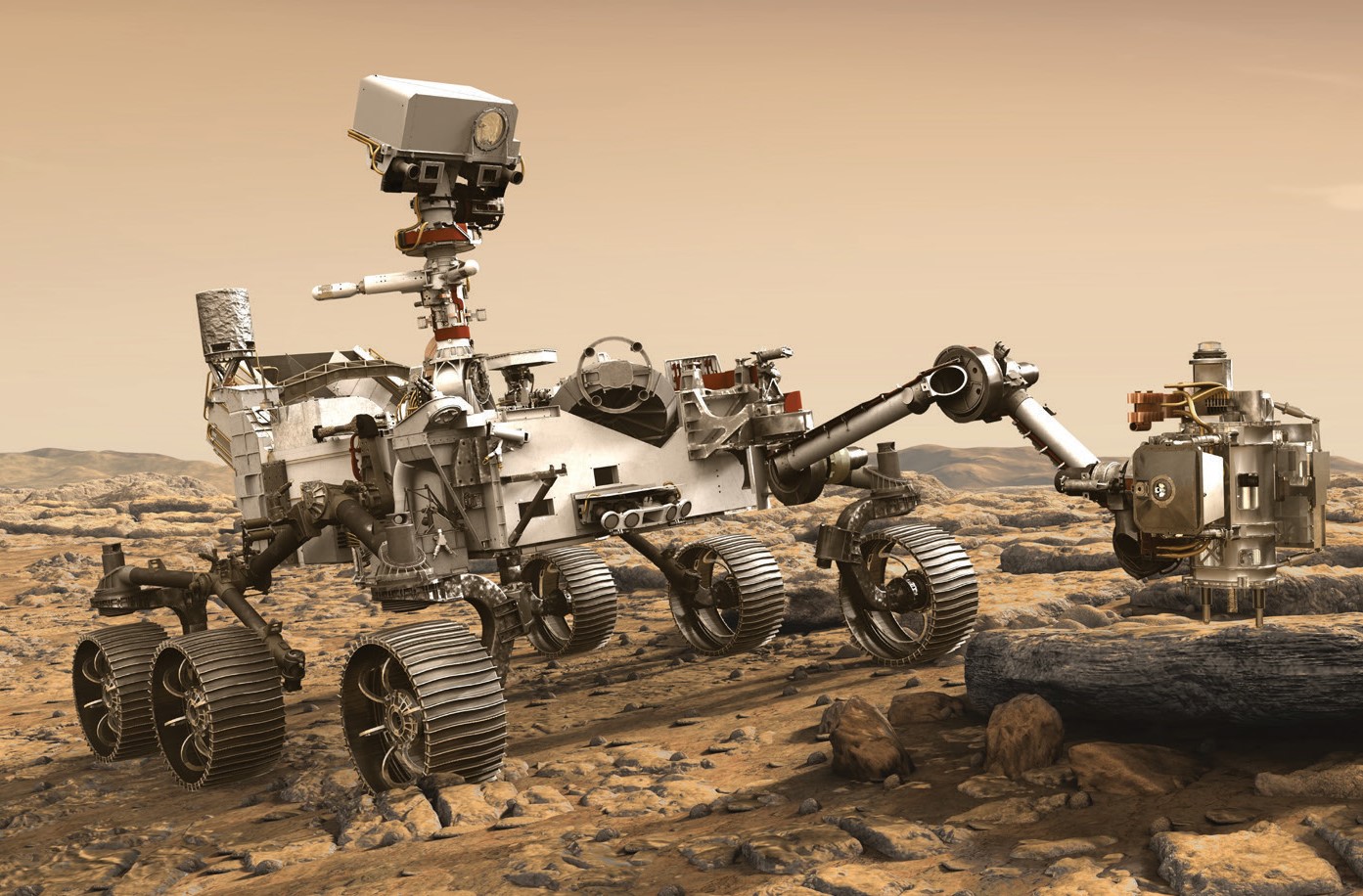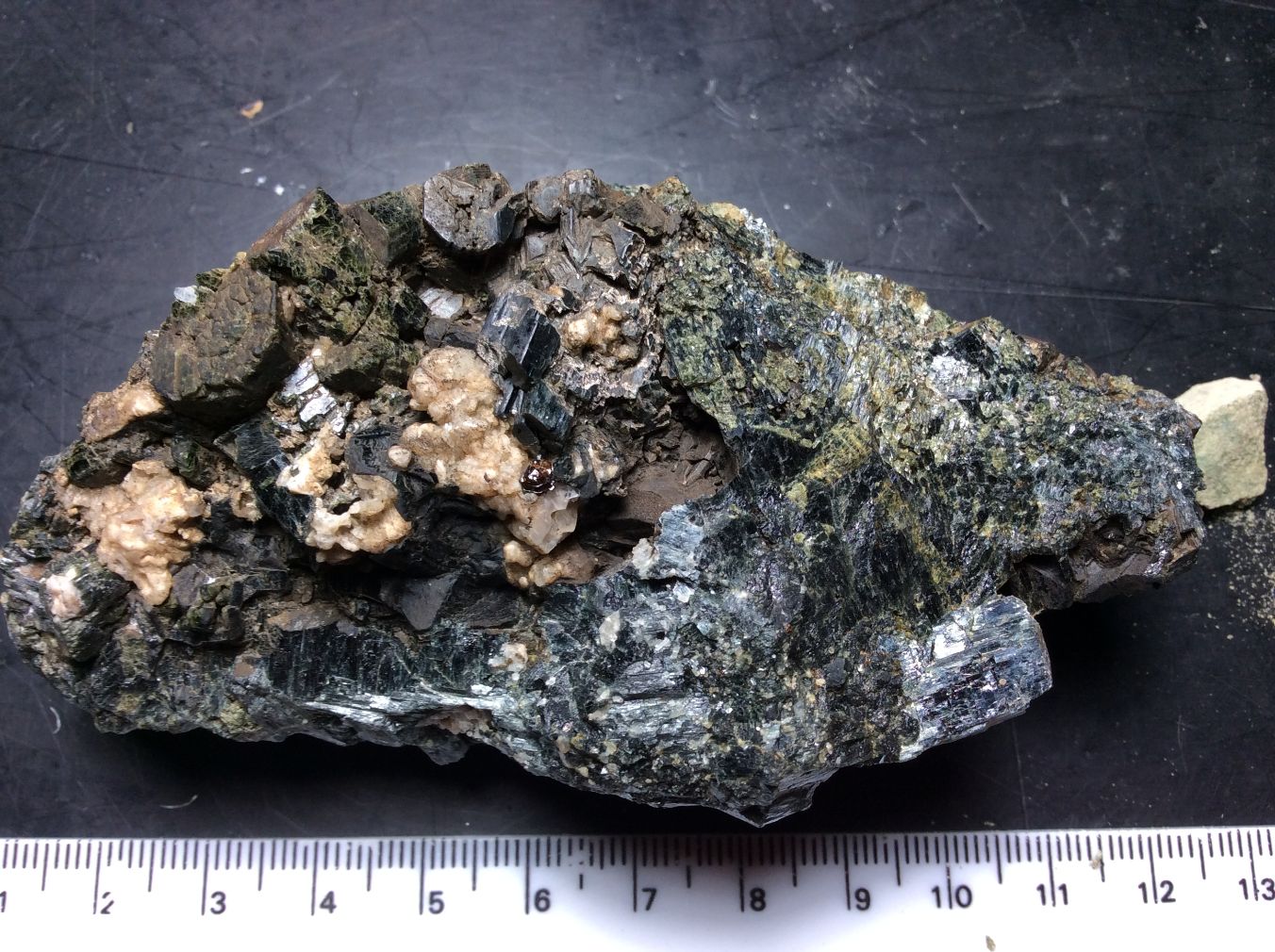
Mars, the fourth planet from the Sun, has long been a subject of fascination for scientists and space enthusiasts alike. Over the years, several missions have been sent to the Red Planet in a bid to understand its mysteries, with one of the most significant contributions coming from Mars rovers. These remarkable robotic explorers have revolutionized our knowledge of Mars by collecting valuable data and images, uncovering breathtaking discoveries, and pushing the boundaries of what is possible in space exploration.
In this article, we will dive into the world of Mars rovers and explore 20 mind-blowing facts that will leave you in awe of these incredible machines. From their impressive feats of engineering to their remarkable endurance, these rovers have played a pivotal role in our quest to unravel the secrets of Mars. So, strap in and prepare for a journey of discovery as we unveil the fascinating world of Mars rovers.
Key Takeaways:
- Mars rovers have been exploring Mars since 1997, uncovering evidence of water and diverse rock formations, inspiring public fascination, and contributing to the search for signs of extraterrestrial life.
- The future of Mars exploration looks promising with more advanced rovers like NASA’s Perseverance and the European Space Agency’s ExoMars, continuing to push the boundaries of scientific discovery on the red planet.
Mars rovers have been exploring the red planet since 1997.
Since the landing of the Pathfinder mission’s Sojourner rover in 1997, Mars has seen a continuous presence of robotic rovers, expanding our knowledge about its geology and climate.
The most famous Mars rover is Curiosity.
Curiosity, also known as the Mars Science Laboratory, is the largest and most advanced rover to date. It was launched in 2011 and is still operational, providing valuable data and images.
Opportunity rover holds the record for longest distance traveled on Mars.
Opportunity, a robotic geologist, covered a staggering distance of over 28 miles (45 kilometers) during its mission on Mars, surpassing the previous record set by the Soviet Union’s Lunokhod 2 rover on the Moon.
The Mars rovers are powered by solar panels.
These rovers rely on solar panels to generate electricity to power their scientific instruments, movement, and communication systems. The size and angle of the panels are optimized to maximize energy production despite the planet’s dusty atmosphere.
Each Mars rover has a distinct set of scientific instruments.
From cameras and spectrometers to drills and weather sensors, each rover is equipped with a unique suite of scientific instruments tailored to its specific mission objectives.
Rovers have discovered evidence of water on Mars.
Several rovers, including Curiosity and the Mars Exploration Rovers Spirit and Opportunity, have found signs of past water activity on the red planet. These discoveries have bolstered the possibility of life on Mars in its ancient history.
Spirit and Opportunity were designed to last 90 days but exceeded expectations.
Originally designed for a 90-day mission, the twin rovers Spirit and Opportunity defied all odds and continued their operations on Mars for over 6 and 14 years, respectively, greatly surpassing their expected lifetimes.
The Mars rovers communicate with Earth using orbiting satellites.
Due to the vast distance between Mars and Earth, the rovers rely on orbiting satellites, such as the Mars Reconnaissance Orbiter, to relay their scientific data, images, and commands back and forth.
Each Mars rover has a unique landing system.
From airbags and skycranes to retro-rockets, each Mars rover has utilized a distinct landing system tailored to the specific mission’s requirements and the planet’s challenging atmosphere.
The Mars rovers endure extreme temperatures on the red planet.
Mars experiences frigid temperatures, with average daily temperatures dropping to -80 degrees Fahrenheit (-62 degrees Celsius). The rovers are designed to withstand these harsh conditions with specialized insulation and heating systems.
Mars rovers have captured breathtaking panoramic images.
Equipped with high-resolution cameras, the rovers have captured stunning panoramic images of Mars’ landscapes, allowing scientists and the general public to explore the beauty of the red planet.
The Mars rovers have expanded our understanding of Mars’ geological history.
By analyzing rock samples, studying the composition of the soil, and examining the planet’s geology, the rovers have provided valuable insights into Mars’ past and its potential for supporting life.
The wheels of Mars rovers have unique designs.
To navigate the rugged terrain of Mars, the rovers’ wheels are made with intricate patterns and materials to provide optimal traction and durability. Some designs even allow them to climb over obstacles as tall as their own wheels.
The Mars rovers can autonomously navigate their surroundings.
Equipped with advanced software, the rovers can navigate their surroundings autonomously, analyzing the terrain, avoiding obstacles, and planning their routes with minimal intervention from mission control.
Mars rovers collect and analyze samples of the Martian soil.
Through drilling and sample analysis, the rovers have provided valuable data about the composition of Mars’ soil, helping scientists understand its potential for supporting microbial life and future human exploration.
Mars rovers have endured dust storms on the red planet.
During their missions, the rovers have encountered and endured severe dust storms on Mars, which posed challenges in terms of visibility and energy production. However, they managed to overcome these obstacles and continue their scientific investigations.
The rovers have discovered diverse rock formations on Mars.
By examining various rock formations, the rovers have uncovered evidence of volcanic activity, sedimentary layers, and even signs of past water erosion, providing valuable clues about Mars’ geological history.
The Mars rovers have inspired public fascination and interest in space exploration.
With their remarkable achievements and captivating images, the Mars rovers have ignited a sense of wonder in people worldwide, inspiring the next generation of scientists and fueling public support for space exploration missions.
Mars rovers have contributed to the search for signs of extraterrestrial life.
By investigating the potential habitability of Mars and searching for biosignatures, the rovers have played a crucial role in the ongoing quest to find evidence of life beyond Earth.
The future of Mars exploration includes more advanced rovers.
With planned missions like NASA’s Perseverance rover and the European Space Agency’s ExoMars rover, the future of Mars exploration looks promising. These next-generation rovers will continue to push the boundaries of scientific discovery on the red planet.
As we reflect on these 20 mind-blowing facts about Mars rovers, we gain a deeper appreciation for the incredible achievements they have made in exploring the mysteries of the red planet. From uncovering evidence of water to expanding our understanding of Mars’ geological history, these robotic explorers have forever changed our perception of our neighboring planet. As we eagerly await the next wave of Mars missions, we can only imagine the groundbreaking discoveries that lie ahead.
Conclusion
In conclusion, the Mars rovers have revolutionized our understanding of the red planet. These incredible machines have provided us with invaluable data and insights about Mars’ geology, climate, and potential for life. The 20 mind-blowing facts we have explored in this article demonstrate the tremendous achievements of these rovers, from the longest distance traveled to the discovery of ancient riverbeds.
As we eagerly await future missions to Mars, it is important to acknowledge the significant contributions made by the Curiosity, Spirit, and Opportunity rovers. They have paved the way for future explorations and have solidified our determination to uncover the mysteries of our neighboring planet.
FAQs
Q: How many Mars rovers have been sent to the red planet?
A: Four Mars rovers have been sent to Mars: Sojourner, Spirit, Opportunity, and Curiosity.
Q: How long does it take for a Mars rover to reach Mars?
A: The travel time for a Mars rover to reach Mars varies, but it typically takes between six and nine months.
Q: What is the purpose of Mars rovers?
A: The primary purpose of Mars rovers is to explore the surface of Mars, collect data, and search for signs of past or present life.
Q: How do Mars rovers send data back to Earth?
A: Mars rovers send data back to Earth through a combination of orbiters, which act as relays, and direct communication with Earth using antennas.
Q: How long do Mars rovers typically operate on the surface of Mars?
A: Mars rovers are designed to operate for a specific mission duration, which can range from a few months to several years. For example, the Opportunity rover operated for over 14 years, far exceeding its initial 90-day mission.
Mars rovers have captivated our imaginations, providing unprecedented insights into the red planet's mysteries. As we marvel at these incredible machines, our curiosity grows about the broader realm of space exploration. From the enigmatic nature of space missions to the intriguing world of robotic explorers, there's so much more to uncover. Join us on a journey through the fascinating facts that await you, as we delve deeper into the awe-inspiring wonders of our universe.
Was this page helpful?
Our commitment to delivering trustworthy and engaging content is at the heart of what we do. Each fact on our site is contributed by real users like you, bringing a wealth of diverse insights and information. To ensure the highest standards of accuracy and reliability, our dedicated editors meticulously review each submission. This process guarantees that the facts we share are not only fascinating but also credible. Trust in our commitment to quality and authenticity as you explore and learn with us.


